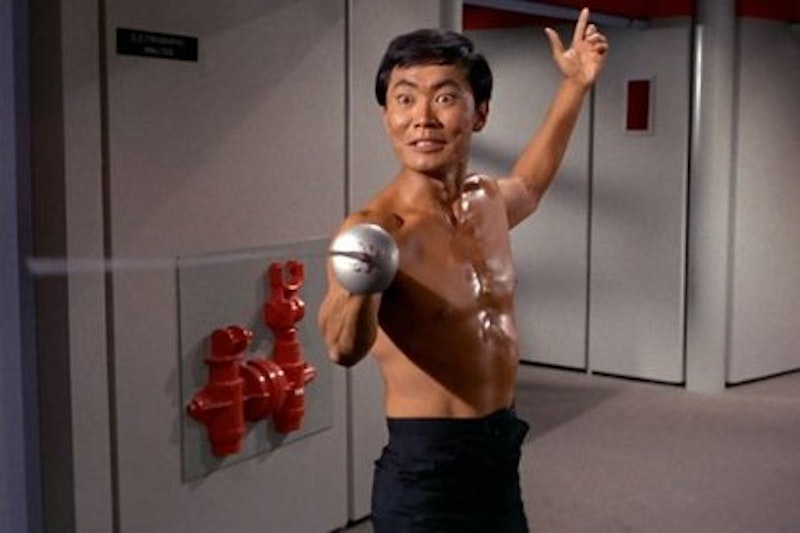Some public figures become iconic with a lone superlative achievement, others for an association with a particular place in time or a specific ideology. Then there's the public figure that becomes dwarfed by the monumental trajectory of his or her entire life, someone who transcends the cult of personality and becomes synonymous with an iconography of fate. This is the sort of person who proves that regardless of professional success or public notoriety, no matter who you are, a meaningful life is only the sum of its parts.
The late Earl Weaver was a legendary manager of the Baltimore Orioles, but also gained notoriety for the obnoxious and unsportsmanlike conduct that frequently got him ejected from games throughout the 1970s. As head skipper of the in-their-prime O’s, Weaver stomped around the field like a preening peacock on a drunken spree, kicking dirt on umpires, blatantly insulting star players like Jim Palmer, and spewing wisecracks at everyone around him. Despite the near non-stop tumult of his days with the Orioles, Weaver's final years were spent in the relative peace and quiet one might expect from a retired baseball celebrity. The embattled manager actually retired from the Major Leagues twice and, according to a recent New York Times piece by Bruce Weber, when asked what led him to his first retirement in 1982, Weaver replied, “I really don’t like confrontations... One of the reasons I’m retiring is that I’m tired of hurting people’s feelings.”
In light of this statement, Weaver can be seen as someone who had an enormous sense of pride for the triumphs in his career, yet was profoundly haunted by the crass histrionics which tarnished those victories. Ultimately, Weaver's career has become a unique monument to the inner turmoil of anyone who has ever experienced intense scrutiny as both a hero and a villain.
Linda Boreman was an innocuous Catholic girl from Yonkers, NY, but that squeaky-clean rep didn't last long. While recuperating from a car accident that occurred near her parents' Florida condo, Boreman was sunbathing pool-side when a vacationing pimp/hustler named Chuck Traynor used his street-wise swagger to guide the impressionable 19-year-old into New York City's hardcore porn industry. Traynor had Boreman change her name to Linda Lovelace and then led her to a major film role in 1972's Deep Throat, a mafia financed picture that became a touchstone moment in the 70s sexual revolution. Despite the film's purported $50 million success, Lovelace would eventually claim her performances in Throat and other adult films were low-paying and done against her will, merely the result of Traynor's abuse and manipulation. In a 1981 interview with the Toronto Sun, Lovelace said, "When you see the movie 'Deep Throat,' you are watching me being raped... there was a gun to my head the entire time." With these outrageous allegations, Lovelace began a high profile career in the 80s as an anti-porn activist. This move was certainly one of the most intense celebrity 180's ever, but nothing is quite as outrageous as the strange role which car accidents played in Lovelace/Boreman's tribulations. Time recuperating from a car accident created the circumstances that launched her porn career, yet in 2002 her story took a totally different turn when she sustained severe injuries in another auto collision, resulting in her untimely death. In this respect, the infamy of Lovelace's porn connection seems almost trivial when compared to the way in which her life became a heartbreaking, almost mythic testament to poetic injustice.
From his time as a prisoner in racist Asian-American internment camps during World War II, to achieving a Master Of Arts degree from UCLA, to his acting studies at the Shakespeare Institute in the UK and at Desilu Studios in Hollywood, to his breakout role in Star Trek, to his tireless efforts on behalf of the gay rights movement, to Facebook celebrity, it is impossible to pigeonhole actor/activist/humorist George Takei (pictured). What truly makes me feel an absolute sense of awe upon the mere mention of his name is this quote from Frontiers magazine in which Takei explained his feelings about finally deciding to openly identify himself as a homosexual: "It's not really coming out, which suggests opening a door and stepping through. It's more like a long, long walk through what began as a narrow corridor that starts to widen."
The poetry of this quote is breathtaking, but what really makes it unique is the way in which the widening corridor analogy could be applied to so many different elements of Takei's life. In his time, Takei has felt layers of prejudice and intolerance dematerialize into the swirling collapse of false pretense at its most futile. From the realization of Asian-American civil rights, to gay pride, to his surprisingly close relationship with the cast of Howard Stern’s radio show, even to the way in which he eventually made a self-conscious effort to reconcile a public feud with William Shatner, Takei has been transformed many times over by the power of a developing culture of tolerance and empathy. Considering all of this, the public presence of Takei seems less like a successful actor's resume and more like a panoramic collage eternally aglow with the spectacle of revolutionary change itself.
Follow @Splice Today on Twitter.

